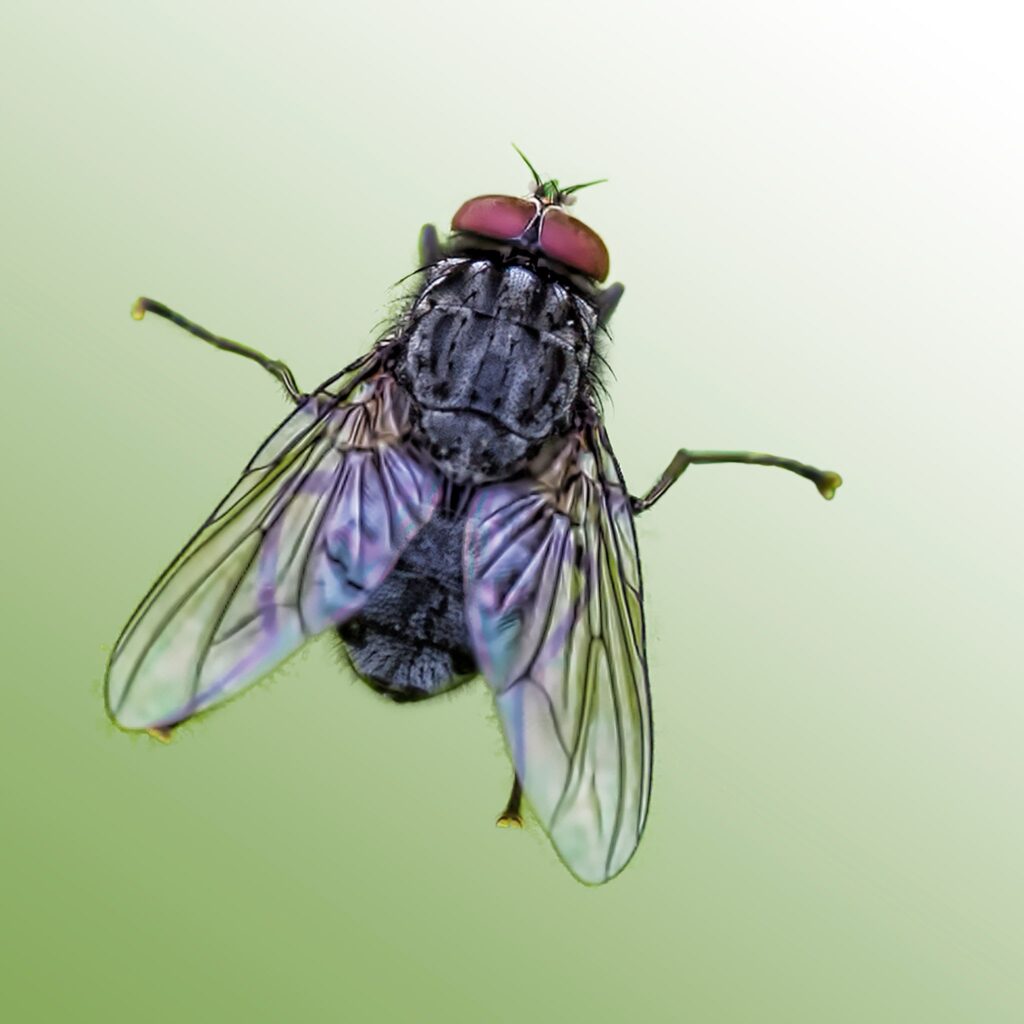Introduction:
Welcome to our comprehensive guide on fly control and prevention. Flies can be a common annoyance and potential health hazard in households. Understanding their behavior, appearance, and breeding habits is essential in effectively dealing with fly infestations. Our expert service technicians are here to provide you with high-quality solutions and support to tackle your fly problem using safe and efficient methods. Rest assured, we’ll guide you every step of the way to ensure a fly-free and hygienic environment for your home.
Understanding Flies:
Flies are winged insects known for their rapid flight and ability to land on various surfaces. They typically have large compound eyes, a pair of antennae, and a small, spongy mouthpart for feeding on liquids. Flies come in different species and sizes, but most are characterized by their quick movements and buzzing sounds.
Breeding Habits:
Flies have a short life cycle, and their reproduction rates can be rapid. They lay eggs on decaying organic matter, such as food waste, animal droppings, and compost. Within a short period, eggs hatch into larvae (maggots), which then pupate and emerge as adult flies.
Signs of Fly Infestation:
Identifying a fly infestation is crucial for prompt action. Look out for an increased number of flies inside your home, particularly in areas near food sources or breeding grounds. Additionally, you may notice maggots in garbage or compost bins as a sign of fly activity.
Flyborne Diseases:
Flies are known to carry and transmit various diseases, including foodborne illnesses such as salmonella and E. coli. Their presence in homes can contaminate food surfaces and pose health risks to occupants, especially children and the elderly.
Preventing Fly Infestations:
Effective prevention can significantly reduce fly populations in and around your home. Here are some preventative measures to consider:
- Proper Waste Management: Keep garbage bins tightly sealed and clean them regularly. Dispose of food waste promptly in sealed containers.
- Cleanliness: Maintain a clean environment, especially in the kitchen and dining areas. Wipe down surfaces regularly to eliminate food residues that attract flies.
- Screening and Sealing: Install window screens and ensure all doors and windows have proper seals to prevent flies from entering.
- Outdoor Maintenance: Regularly clean up pet waste and remove decaying organic matter in the yard. Ensure compost bins are well-managed and away from the house.
- Drain Maintenance: Keep drains clean and free of debris, as they can be breeding grounds for certain fly species.
Fly Control Methods:
For persistent fly issues, professional pest control services can offer targeted treatments to eliminate existing fly populations and prevent future infestations. These treatments are designed to be safe for your family and pets.
For professional assistance in fly control and prevention, don’t hesitate to contact us at [Your Contact Number]. We guarantee a personal and top-notch service, guiding you through every step of the process. Ensure a fly-free environment and protect your family from the potential health risks posed by these pesky insects.
